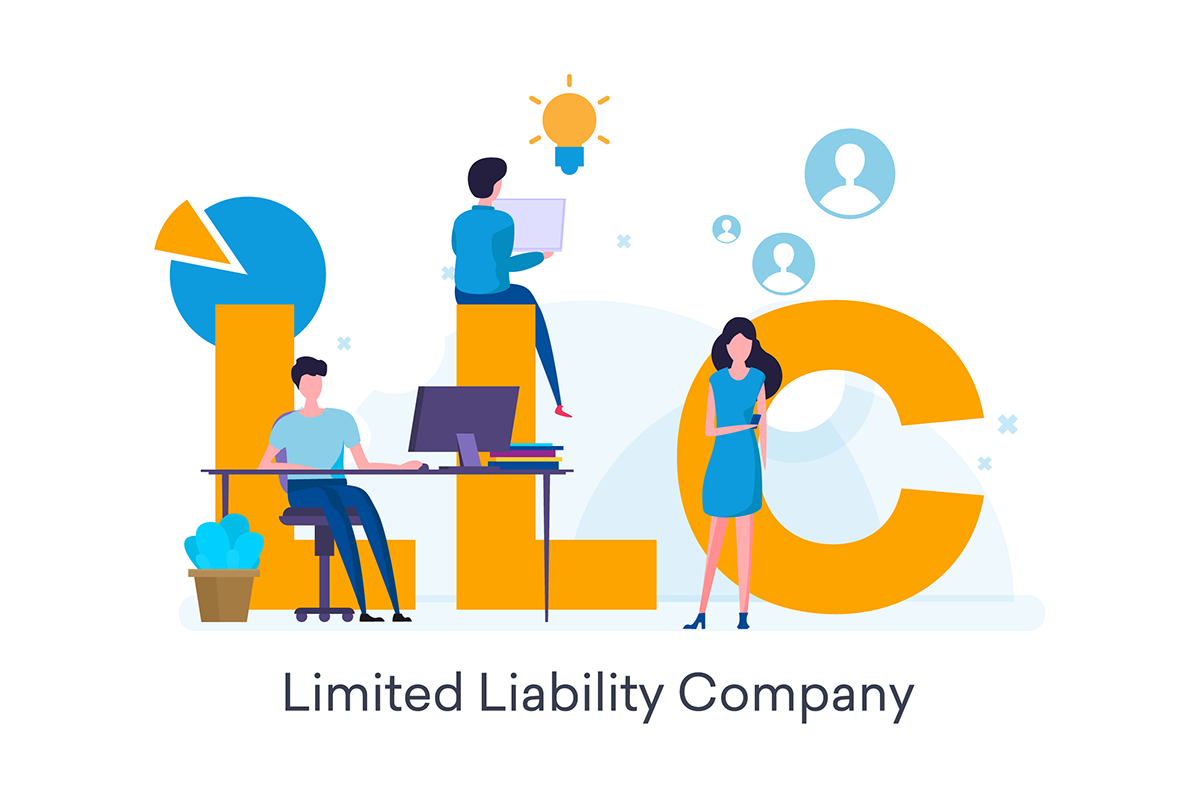Owning your own business is having a slice of the American dream. Taking the leap into entrepreneurship isn’t easy, but those who do understand that the risks make the rewards that much sweeter. There are many things to consider when starting a business, especially choosing the best business formation. That’s why we decided to dig into the topic of Limited Liability Companies, or LLCs to help you get answers to some basic questions.
What is a Limited Liability Company (LLC)?
The IRS defines an LLC as a business structure allowed by state statute. Each state has its own regulations for LLCs, so be sure to check with your home state on how to file for an LLC. LLC owners are referred to as members, and members can either be individuals, a partnership, or a corporation. How the member(s) is defined has a direct effect on tax filing and classification.
LLCs are the most popular business formation for small businesses because of the flexibility and protection they allow for business owners. An array of tax options while protecting business owners from personal liability means that members have a little more flexibility to do what’s best for their bottom line.
What are some advantages of an LLC?
The LLC business formation is advantageous for many small business owners, and having one can help gain credibility with customers. Let’s take a look at a few reasons why LLCs can benefit small businesses:
- Personal liability protection
-
- Limited liability protection means that should a business be sued or suffer from a loss, the member’s personal assets (such as your house, vehicle, and personal financial accounts) are protected. This kind of protection isn’t available in a sole proprietorship or a traditional partnership.
- Two words: Less paperwork
-
- Who wants more paperwork?! Especially when starting a business, simplifying procedures helps when you’re wearing many hats. Simply put—compared to corporations, forming an LLC is easier and requires less maintenance. In most cases, LLCs are not subject to the meetings and supplemental documentation that corporations are required to.
- Flexibility for taxes
-
- “The IRS does not consider an LLC to be a distinct separate entity for tax purposes. This means that, at least initially, the IRS will not tax the LLC directly. Instead, members of the LLC get to determine how they want to be taxed,” says Cynthia Dixon, Atty.
- These options include: Single member LLC, Partners in an LLC, and LLC filing as a corporation.
- More business opportunities
-
- In the competitive business world, having established yourself as a ‘legitimate’ business gives you a competitive edge.
The LLC Operating Agreement
While one of the advantages of an LLC formation is less paperwork, there is one critical document that legal experts recommend maintaining, even if it’s not required in your state—the operating agreement.
The operating agreement is a legal document that outlines critical information such as the roles, relations, and duties of each member. It also specifies daily operations, and how the LLC will be treated for tax purposes.
Openforce + Rocket Lawyer
At Openforce, we are passionate about supporting the dreams and visions of entrepreneurs at every level. That’s why we partnered with Rocket Lawyer to offer our members an exclusive discount for LLC formation. For $99 (plus state fees), Rocket Lawyer will handle the paperwork so you can avoid the headaches and get to work faster.
Start your entrepreneurial journey by visiting Rocket Lawyer’s information page today. Becoming your own boss can not only be affordable, with Rocket Lawyer, it’s as easy as 1-2-3!
About Openforce
Openforce is the leader in technology-driven services that reduce operating costs and mitigate risk for companies using independent contractors. Our cloud-based applications help companies and contractors alike achieve more sustainable, profitable growth by removing financial, operational, and compliance barriers to getting business done.

